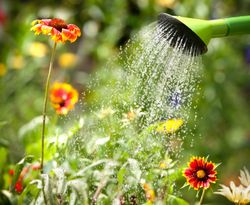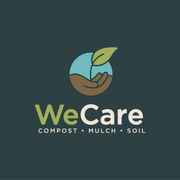3 Reasons Why Compost Is the Key to Gardening Success

Whatever grows in your garden—trees, shrubs, flowers, ivies, or vegetables, all plants need compost to flourish. In fact, there’s no reason, none at all, not to use compost to amend your soil. Compost is an organic material that, when added to soil, improves the physical properties of soil, such as its structure, water retention, and nutrient content. Here is a short introduction to a few of the many benefits of compost.
Compost Benefits Gardens in 3 Essential Ways
1. Improves Soil Structure
Healthy soil has a distinct feel to it. It’s soft, almost fluffy, and crumbles in your hand. Water, oxygen, and nutrients can’t move through dense soil to reach plant roots, so steps should be taken to amend it, with a balanced mix of inorganic material like sand and pea gravel and organic material like humus and compost.
2. Reduces Water Usage
C omposted soils are healthy soils. When amended with compost, soils retain water better than otherwise, and their drainage and aeration properties also improve. Whether you water with cans or hoses or with large industrial sprinklers, compost conserves water and keeps soils most.
omposted soils are healthy soils. When amended with compost, soils retain water better than otherwise, and their drainage and aeration properties also improve. Whether you water with cans or hoses or with large industrial sprinklers, compost conserves water and keeps soils most.
3. Raises Nutrient Content
Compost consists of decomposed organic material, including micro-organisms like bacteria and fungi and macro-organisms like beetles and worms. These organisms break down grass clippings, manure, wood chips, and other biosolids, adding nutrients essential for plant growth to the soil. Nitrogen, phosphorus, and potassium, along with magnesium, iron, and zinc, are all necessary for healthy plant growth.
When you need organic mulch, roof mix, compost, or engineered soils to give your gardens an advantage, choose WeCare for top-quality products and best-in-class service. For more than 20 years, they’ve been offering soil-improvement solutions to builders, developers, and landscapers to help them achieve garden success. Visit them online to learn more, or call (315) 575-4595 to speak to a WeCare representative.
About the Business
Have a question? Ask the experts!
Send your question

